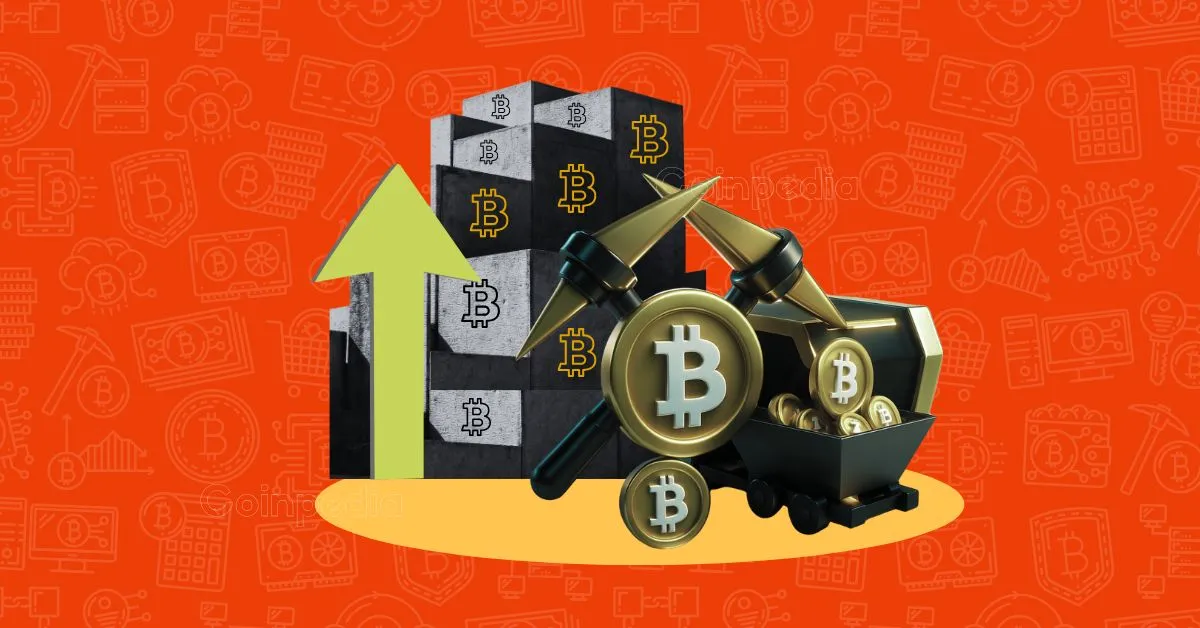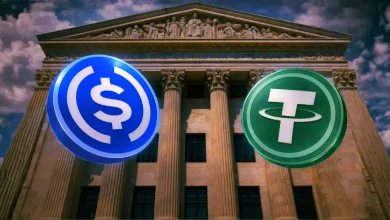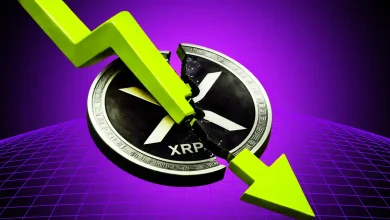
Bitcoin just hit block 900,000, marking a key milestone on the road to the 2028 halving.
Mining rewards continue to shrink, with over 75% of all BTC already in circulation.
JPMorgan reports rising mining profitability in May, as network activity and hashrate grow.
This is huge news! Bitcoin just crossed a new line in the sand. On Friday, the network hit block 900,000, a milestone that reflects the strength, consistency, and long-game design of the world’s largest cryptocurrency.
The block was mined by ViaBTC, one of the industry’s major mining pools, and included 1,562 transactions with relatively low fees (~3 sat/vB), generating 0.018 BTC in transaction rewards. Compared to the block before it – which packed fewer transactions but higher average fees – it was efficient, fast, and right on time.
But the real story isn’t about this single block. It’s about what it represents.
The Halving Is Coming: Where Do We Stand?
Block 900,000 puts us exactly 150,000 blocks away from the next Bitcoin halving, projected to hit at block 1,050,000 around March 2028. That’s when miner rewards will shrink again – from 3.125 BTC to 1.5625 BTC.
It took Bitcoin nearly two years to climb from block 800,000 to 900,000. If that pace holds, the 1 million block mark will arrive sometime around May 2027. Yes, that’ll be a historic moment too, but from a network perspective, the countdown to the halving is where the real tension builds.
The halving can be regarded as a supply shock baked into Bitcoin’s DNA. Each one tightens issuance, raises scarcity, and shifts the economics of mining.
And that’s exactly why this matters so much.
More Than 75% of Bitcoin Is Already Mined
This milestone also brings us closer to Bitcoin’s hard-coded supply ceiling: 21 million coins. Right now, more than three-quarters of all BTC that will ever exist is already in circulation.
Back in the early days, miners earned 50 BTC per block. That number has been cut in half four times now, down to 3.125 BTC post-2024 halving. Over the decades ahead, it will keep shrinking until it’s effectively zero – likely around the year 2140. At that point, miners won’t earn new BTC from block rewards.
They’ll be working solely for transaction fees. The shift is not far.
Mining Profits Just Got a Boost
Interestingly, while block rewards are getting smaller, mining profitability actually climbed in May. A recent JPMorgan report shows that the total market cap of 13 U.S.-listed miners tracked by the bank jumped 19% month-over-month.
Driving that growth? A rise in Bitcoin’s price and a boost in network activity. According to analysts, “bitcoin miners earned an average of $51,600 per EH/s in daily block reward revenue in May, up 16% from April.” Gross profit surged too – up 36% month-over-month to $27,900 per EH/s.
Among the standouts: IREN posted a 37% jump, while Bitfarms (BITF) lagged behind with an 8% dip. In total, 7 out of 13 miners outperformed Bitcoin itself last month.
Looking Ahead
Block 900,000 is a reminder of how deliberately Bitcoin moves through time. Every block is shaping the future economics of the entire network.
The next halving is getting closer. Mining incentives are shifting. And even as rewards decrease, miner interest and network competition are heating up.
Bitcoin is growing stronger with every block!
Trust with CoinPedia:
CoinPedia has been delivering accurate and timely cryptocurrency and blockchain updates since 2017. All content is created by our expert panel of analysts and journalists, following strict Editorial Guidelines based on E-E-A-T (Experience, Expertise, Authoritativeness, Trustworthiness). Every article is fact-checked against reputable sources to ensure accuracy, transparency, and reliability. Our review policy guarantees unbiased evaluations when recommending exchanges, platforms, or tools. We strive to provide timely updates about everything crypto & blockchain, right from startups to industry majors.
Investment Disclaimer:
All opinions and insights shared represent the author's own views on current market conditions. Please do your own research before making investment decisions. Neither the writer nor the publication assumes responsibility for your financial choices.
Sponsored and Advertisements:
Sponsored content and affiliate links may appear on our site. Advertisements are marked clearly, and our editorial content remains entirely independent from our ad partners.







